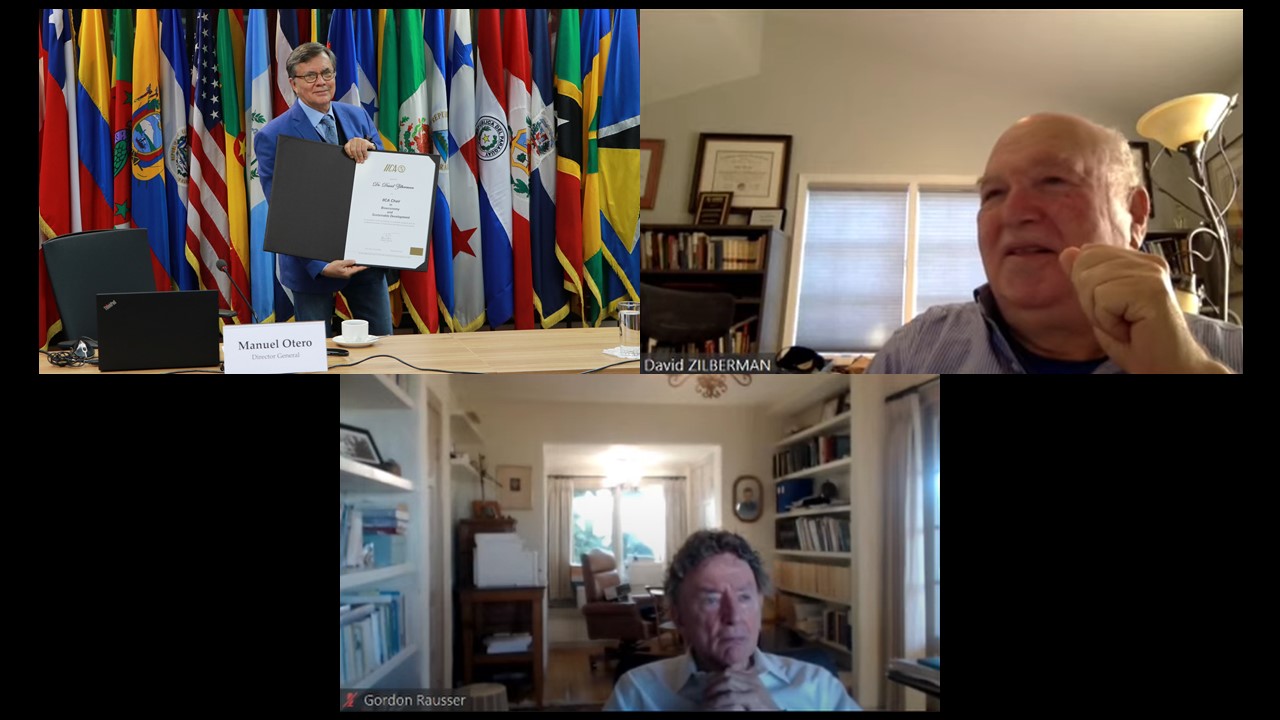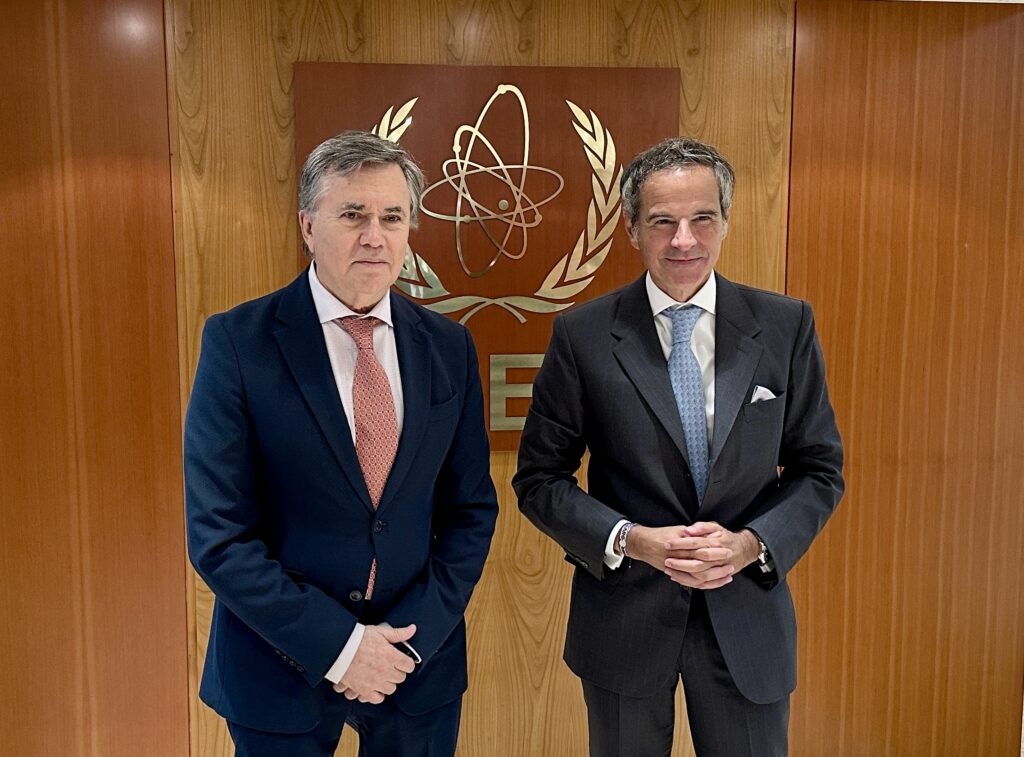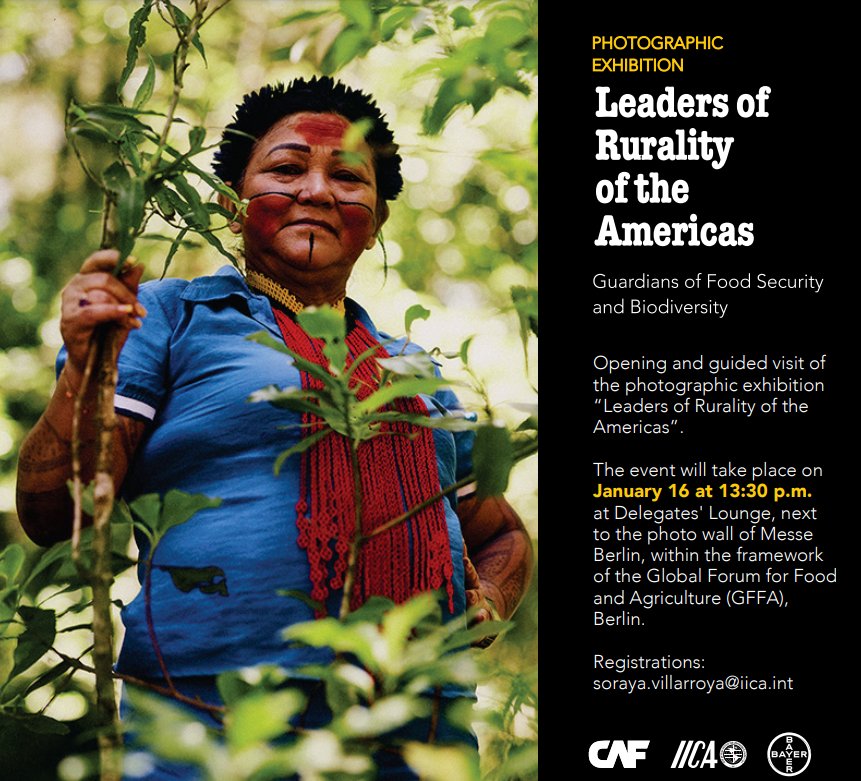Zilberman es profesor del Departamento de Economía Agrícola y de Recursos Económicos de la Universidad de California, Berkeley. Sus áreas de especialidad son agricultura y políticas ambientales, economía de la innovación, y biotecnología y cambio climático.

San José, 15 de noviembre de 2021 (IICA). El economista y catedrático de la Universidad de California, Berkeley, David Zilberman, referente en la construcción del concepto de bioeconomía como visión para el desarrollo, fue reconocido con el título de “Cátedra IICA en Bioeconomía y Desarrollo Sostenible”.
El Director General del Instituto Interamericano de Cooperación para la Agricultura (IICA), Manuel Otero, entregó en una ceremonia virtual el título a Zilberman, autor de trabajos de cita ineludible sobre las energías alternativas y, particularmente, sobre los biocombustibles, como cimientos de una nueva matriz energética mejor alineada con las preocupaciones ambientales de nuestro tiempo.
En la ceremonia también participaron Gordon Rausser, uno de los más reconocidos economistas especializados en agricultura a nivel internacional y Distinguido Profesor Emérito de la Universidad de California, Berkeley; Beverly Best, Directora de Relaciones Exteriores e Institucionales del IICA y Jorge Werthein, Asesor Especial de la Dirección General del Instituto.
Zilberman es profesor del Departamento de Economía Agrícola y de Recursos Económicos de la Universidad de California, Berkeley. Sus áreas de especialidad son agricultura y políticas ambientales, economía de la innovación, y biotecnología y cambio climático.
Desde esa posición, ha venido abogando por el posicionamiento de la bioeconomía como una fuente de oportunidades para apalancar el desarrollo de las zonas rurales de las Américas y acelerar la reactivación de las economías golpeadas por el Covid-19.
La bioeconomía es una visión que impulsa la industrialización inteligente a partir del uso de recursos biológicos, convirtiéndolos en productos con valor agregado, como bioproductos, bioenergías y servicios. Busca también responder a los desafíos ambientales existentes, mitigando efectos del cambio climático y reduciendo la utilización de combustibles fósiles.
“Estoy muy honrado por este reconocimiento, ya que cuando visité el IICA por primera vez hace 20 años, para un debate sobre cambio climático, admiré la visión del Instituto y pensé que algún día me gustaría ser parte de él”, dijo Zilberman.
El académico señaló que la agricultura enfrenta hoy numerosos desafíos simultáneos, como son lidiar con el cambio climático, garantizar la seguridad alimentaria, mejorar la calidad de los cultivos y ser fuente de ingresos para millones de pequeños productores, y consideró que el trabajo de cooperación del IICA hace un aporte significativo para afrontarlos.
Zilberman sostuvo que la agricultura orgánica puede cumplir un rol limitado, ya que no es capaz de producir alimentos accesibles para todos, y señaló que es necesario incrementar la productividad, a través de las herramientas de la biología, que también son eficientes para preservar los recursos naturales y afrontar los efectos del cambio climático.
“Debemos hacer la transición hacia el uso de energías renovables y dejar de depender del uso de combustibles fósiles. La biología tiene una increíble capacidad de generar recursos y debemos expandir el conocimiento; la tierra puede producir alimentos, químicos y biocombustibles. Esto es cierto especialmente en las Américas, que tiene un ambiente único”, agregó.
Zilberman advirtió sobre la necesidad de fomentar la inversión público-privada, construir capacidades y atraer inversiones para que los países del continente puedan aprovechar el gran potencial de sus recursos biológicos.
Por su lado, Gordon Rausser, prestigioso colega de Zilberman, hizo un repaso de los innumerables logros académicos de Zilberman y se retrotrajo a 1979, cuando éste completó su doctorado.
“Entre sus reconocimientos hay que destacar que en 2019 fue el primer economista que recibió el Premio Wolf en Agricultura”, dijo Rausser. El Wolf es considerado el equivalente al Premio Nobel en materia de investigación y desarrollo agrícola.
Rausser destacó que conoce a Zilberman desde hace más de 40 años y elogió su versatilidad para hacer aportes significativos en distintas disciplinas, su actuación en diversas asociaciones y su predisposición para estar cerca de estudiantes que comienzan sus carreras. “Su trabajo nos ha beneficiado a todos. No ha podido ser un mejor colega y amigo”, resumió.
Beverly Best destacó que Zilberman se ha convertido en un nuevo miembro de la familia del IICA y explicó que el Programa “Cátedras IICA” fue creado en 2018 con la misión de proporcionar cooperación técnica de excelencia focalizada en generar nuevo conocimiento que transforme la agricultura y contribuya al desarrollo rural en las Américas.
“El programa tiene el objetivo de mejorar la visibilidad de ideas innovadoras y de construir capacidades entre los actores de los sectores público y privado y facilitar el intercambio de conocimientos y experiencias”, añadió.
A su turno, Otero explicó que en los últimos años, el IICA ha contado con evidencia directa de la magnitud de las contribuciones de Zilberman y de sus cualidades personales.
“Conjuntamente –relató- hemos desarrollado diversas actividades que han brindado aportes significativos al desarrollo de la bioeconomía en nuestra región. Me refiero específicamente a la participación del Dr. Zilberman en una serie de diálogos académico-políticos que hemos organizado durante el período de la pandemia de Covid-19, así como a la elaboración conjunta del documento ‘Potencial de la bioeconomía para la transformación de los sistemas alimentarios’, mediante el cual contribuimos al trabajo del Grupo Científico establecido en el marco de la reciente Cumbre de las Naciones Unidas sobre los Sistemas Alimentarios.
Otero recordó que anteriormente han recibido el título de Cátedra IICA la Profesora Emérita de la Pontificia Universidad Javeriana, Elizabeth Hodson; el Profesor de Ciencias del Suelo y director del Centro de Gestión del Carbón y Captación de la Universidad Estatal de Ohio, Rattan Lal; el ex ministro de Agricultura de Brasil, Coordinador del Centro de Agronegocios de la Fundación Getúlio Vargas y titular de la Cátedra de Agronegocios de la Escuela Superior de Agricultura “Luiz de Queiroz”, de la Universidad de San Pablo, Roberto Rodrigues; y el Instituto de Investigaciones Fisiológicas y Ecológicas Vinculadas a la Agricultura (IFEVA), de la Facultad de Agronomía de la Universidad de Buenos Aires, Argentina.
Vídeo en inglés:
Más información:
Gerencia de Comunicación Institucional
comunicacion.institucional@iica.int










